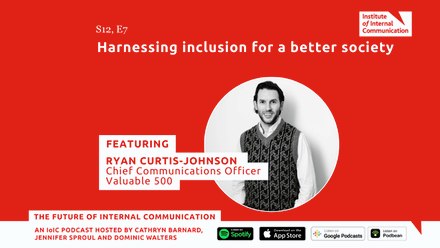Part time, fully committed

Earlier this year, Management Today published the fifth annual Power Part Time 50, produced by flexible working specialist Timewise. It’s a league table recognising senior talent, across all professions, who work anything less than five days per week.
The big buzzword this year was job-sharing, with nine senior partnerships in government, media and banking applauded for their – and their employers’ – commitment to workplace flexibility.
What was particularly pleasing to see this year was the coverage and debate this league table stimulated – and the calibre of entrants. Almost every industrial sector is featured, men and women alike. They’re often at the top of their professions, working flexibly for multiple reasons: the juggling mothers, the non-execs, those with a start-up on the side or charitable commitments. Importantly, they are of every gender and every age; what unifies them is their ‘alternative’ working pattern.
This is down to their employers. How fantastic to see city banks and management consultancies alongside the inevitable public sector employers (always better at this sort of thing). There were retailers, tech giants, travel and legal firms. And several players from our own communications sector – consultancy and client-side.
To me, this points to a real sea change, where offering flexible working is no longer a ‘nice to do’, or even a ‘need-to-be-seen-to-do’ – but a desirable, workable and beneficial solution for employers as well as their people.
At the most basic level, businesses that offer any benefits that serve to keep their best people save hundredfold on recruitment fees and retention costs, not to mention the obvious benefit of having the best talent to service their clients. But there are many ‘softer’ but equally business-critical benefits. I am a case in point.
Having reduced my own working days to four per week to allow me a day at home with a young son, I have found myself to be more creative, efficient and committed in the office. I am grateful to my employer for making this flexible pattern work, and want to repay this through hard work and quality delivery. I have become the very best advocate – which comes through when I pitch to clients, interview prospective colleagues and manage my own teams. Many of the banks and management consultancies we speak to echo the same: they get the same, if not more, from their flexibly working staff.
At Bell Pottinger, we find ourselves advising clients on how to best communicate flexible working benefits as part of employer brand programmes. We recognise that the most effective way for clients to get their people on board is to engage in two-way dialogue, where staff have the opportunity to put forward their requests and debate the workability of different flexible solutions.
We advise clients to have a clear policy on flexible working for all staff – regardless of their circumstances – and that this be clearly and openly communicated (not buried in a distant corner of the intranet). Importantly, these policies can be a big selling point; when seeking to recruit and retain the best people, a business that shows empathy and inclusion will always come out top.
We try to practice what we preach. Our own senior team now comprises a healthy proportion of working parents and those with ‘professional hobbies’ on the side, who might adopt home-based working, tailored working hours or a reduction in days employed. We have made it a firm pillar of our commitment to retain and develop the best talent we have – both male and female.
Any business looking to build its reputation as a place to do business for, and with, needs to look to its employee offer. And while talk around salaries, health benefits and flexible working have long been the buzzwords in internal comms, few have gone on to champion the part-time availability of their most senior talent as a selling point to external customers.
The fact that these corporate powerhouses are proudly sporting their part-time management teams as credentials to build their external reputations – and attract clients, customers and advocates as well as staff – speaks of a genuine change in attitudes to work. Let’s hope many others follow suit.
Emily Luscombe, Deputy Managing Director at Engage by Bell Pottinger, appeared in Management Today’s Power Part Time List 2017.






